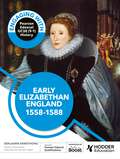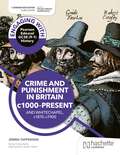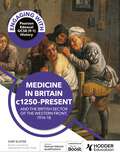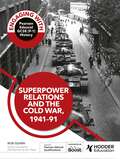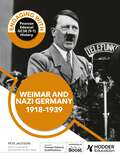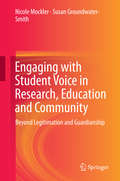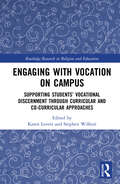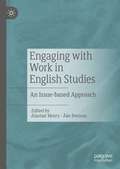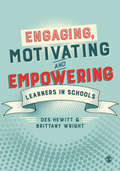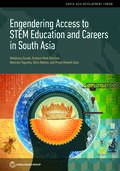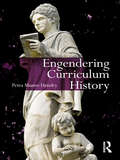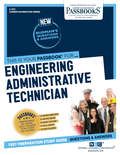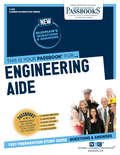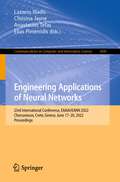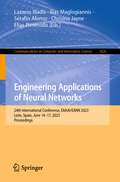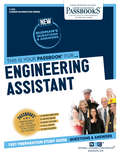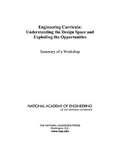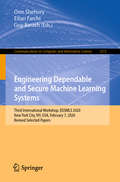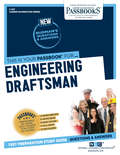- Table View
- List View
Engaging with Pearson Edexcel GCSE (9-1) History: Early Elizabethan England, 1558-88
by Ben ArmstrongTrust the power of cognitive science to help students to understand more, remember more and feel more confident about their exams.This textbook is guaranteed to make learning more effective. The approach was created by author and teacher Dale Banham, who has amazing knowledge of the best teaching methods and over 30 years' classroom experience.> Simplify each topic. The text is broken down into bullet points and boxes. Tasks are structured around the 'steps to success', teaching students how to Connect & Engage, Research & Record, Summarise, Apply and Review their learning> Make learning stick. Cognitive science techniques such as 'interleaving', 'retrieval practice' and 'spaced practice' support students with processing and remembering the course content> Strengthen memory through 'dual coding'. The book contains memory aids that visually summarise key knowledge. Research proves that we remember something better if it's presented through text and images> Improve exam results. The exam skills required to answer each question type successfully are carefully explained. Practice questions, revision tips and guidance based on the examiners' reports are also included> Trust the academic seal of approval. This book has been reviewed by a historian who specialises in the topic, to ensure that the historiography is accurate and up to date
Engaging with Pearson Edexcel GCSE (9–1) History: Crime and punishment in Britain, c1000–present and Whitechapel, c1870–c1900
by Jemma TappendenTrust the power of cognitive science to help students to understand more, remember more and feel more confident about their exams.This textbook is guaranteed to make learning more effective. The approach was created by author and teacher Dale Banham, who has amazing knowledge of the best teaching methods and over 30 years' classroom experience.> Simplify each topic. The text is broken down into bullet points and boxes. Tasks are structured around the 'steps to success', teaching students how to Connect & Engage, Research & Record, Summarise, Apply and Review their learning> Make learning stick. Cognitive science techniques such as 'interleaving', 'retrieval practice' and 'spaced practice' support students with processing and remembering the course content> Strengthen memory through 'dual coding'. The book contains memory aids that visually summarise key knowledge. Research proves that we remember something better if it's presented through text and images> Improve exam results. The exam skills required to answer each question type successfully are carefully explained. Practice questions, revision tips and guidance based on the examiners' reports are also included> Trust the academic seal of approval. This book has been reviewed by a historian who specialises in the topic, to ensure that the historiography is accurate and up to date
Engaging with Pearson Edexcel GCSE (9–1) History: Crime and punishment in Britain, c1000–present and Whitechapel, c1870–c1900
by Jemma TappendenTrust the power of cognitive science to help students to understand more, remember more and feel more confident about their exams.This textbook is guaranteed to make learning more effective. The approach was created by author and teacher Dale Banham, who has amazing knowledge of the best teaching methods and over 30 years' classroom experience.> Simplify each topic. The text is broken down into bullet points and boxes. Tasks are structured around the 'steps to success', teaching students how to Connect & Engage, Research & Record, Summarise, Apply and Review their learning> Make learning stick. Cognitive science techniques such as 'interleaving', 'retrieval practice' and 'spaced practice' support students with processing and remembering the course content> Strengthen memory through 'dual coding'. The book contains memory aids that visually summarise key knowledge. Research proves that we remember something better if it's presented through text and images> Improve exam results. The exam skills required to answer each question type successfully are carefully explained. Practice questions, revision tips and guidance based on the examiners' reports are also included> Trust the academic seal of approval. This book has been reviewed by a historian who specialises in the topic, to ensure that the historiography is accurate and up to date
Engaging with Pearson Edexcel GCSE (9–1) History: Medicine in Britain, c1250–present and The British sector of the Western Front, 1914–18
by Dale Banham Sam SlaterTrust the power of cognitive science to help students to understand more, remember more and feel more confident about their exams.This textbook is guaranteed to make learning more effective. The approach was created by author and teacher Dale Banham, who has amazing knowledge of the best teaching methods and over 30 years' classroom experience.> Simplify each topic. The text is broken down into bullet points and boxes. Tasks are structured around the 'steps to success', teaching students how to Connect & Engage, Research & Record, Summarise, Apply and Review their learning> Make learning stick. Cognitive science techniques such as 'interleaving', 'retrieval practice' and 'spaced practice' support students with processing and remembering the course content> Strengthen memory through 'dual coding'. The book contains memory aids that visually summarise key knowledge. Research proves that we remember something better if it's presented through text and images> Improve exam results. The exam skills required to answer each question type successfully are carefully explained. Practice questions, revision tips and guidance based on the examiners' reports are also included> Trust the academic seal of approval. This book has been reviewed by a historian who specialises in the topic, to ensure that the historiography is accurate and up to date
Engaging with Pearson Edexcel GCSE (9–1) History: Medicine in Britain, c1250–present and The British sector of the Western Front, 1914–18
by Dale Banham Sam SlaterTrust the power of cognitive science to help students to understand more, remember more and feel more confident about their exams.This textbook is guaranteed to make learning more effective. The approach was created by author and teacher Dale Banham, who has amazing knowledge of the best teaching methods and over 30 years' classroom experience.> Simplify each topic. The text is broken down into bullet points and boxes. Tasks are structured around the 'steps to success', teaching students how to Connect & Engage, Research & Record, Summarise, Apply and Review their learning> Make learning stick. Cognitive science techniques such as 'interleaving', 'retrieval practice' and 'spaced practice' support students with processing and remembering the course content> Strengthen memory through 'dual coding'. The book contains memory aids that visually summarise key knowledge. Research proves that we remember something better if it's presented through text and images> Improve exam results. The exam skills required to answer each question type successfully are carefully explained. Practice questions, revision tips and guidance based on the examiners' reports are also included> Trust the academic seal of approval. This book has been reviewed by a historian who specialises in the topic, to ensure that the historiography is accurate and up to date
Engaging with Pearson Edexcel GCSE (9–1) History: Superpower relations and the Cold War, 1941–91
by Rob QuinnTrust the power of cognitive science to help students to understand more, remember more and feel more confident about their exams.This textbook is guaranteed to make learning more effective. The approach was created by author and teacher Dale Banham, who has amazing knowledge of the best teaching methods and over 30 years' classroom experience.> Simplify each topic. The text is broken down into bullet points and boxes. Tasks are structured around the 'steps to success', teaching students how to Connect & Engage, Research & Record, Summarise, Apply and Review their learning> Make learning stick. Cognitive science techniques such as 'interleaving', 'retrieval practice' and 'spaced practice' support students with processing and remembering the course content> Strengthen memory through 'dual coding'. The book contains memory aids that visually summarise key knowledge. Research proves that we remember something better if it's presented through text and images> Improve exam results. The exam skills required to answer each question type successfully are carefully explained. Practice questions, revision tips and guidance based on the examiners' reports are also included> Trust the academic seal of approval. This book has been reviewed by a historian who specialises in the topic, to ensure that the historiography is accurate and up to date
Engaging with Pearson Edexcel GCSE (9–1) History: Superpower relations and the Cold War, 1941–91
by Rob QuinnTrust the power of cognitive science to help students to understand more, remember more and feel more confident about their exams.This textbook is guaranteed to make learning more effective. The approach was created by author and teacher Dale Banham, who has amazing knowledge of the best teaching methods and over 30 years' classroom experience.> Simplify each topic. The text is broken down into bullet points and boxes. Tasks are structured around the 'steps to success', teaching students how to Connect & Engage, Research & Record, Summarise, Apply and Review their learning> Make learning stick. Cognitive science techniques such as 'interleaving', 'retrieval practice' and 'spaced practice' support students with processing and remembering the course content> Strengthen memory through 'dual coding'. The book contains memory aids that visually summarise key knowledge. Research proves that we remember something better if it's presented through text and images> Improve exam results. The exam skills required to answer each question type successfully are carefully explained. Practice questions, revision tips and guidance based on the examiners' reports are also included> Trust the academic seal of approval. This book has been reviewed by a historian who specialises in the topic, to ensure that the historiography is accurate and up to date
Engaging with Pearson Edexcel GCSE (9–1) History: Weimar and Nazi Germany, 1918–39
by Peter JacksonTrust the power of cognitive science to help students to understand more, remember more and feel more confident about their exams.This textbook is guaranteed to make learning more effective. The approach was created by author and teacher Dale Banham, who has amazing knowledge of the best teaching methods and over 30 years' classroom experience.> Simplify each topic. The text is broken down into bullet points and boxes. Tasks are structured around the 'steps to success', teaching students how to Connect & Engage, Research & Record, Summarise, Apply and Review their learning> Make learning stick. Cognitive science techniques such as 'interleaving', 'retrieval practice' and 'spaced practice' support students with processing and remembering the course content> Strengthen memory through 'dual coding'. The book contains memory aids that visually summarise key knowledge. Research proves that we remember something better if it's presented through text and images> Improve exam results. The exam skills required to answer each question type successfully are carefully explained. Practice questions, revision tips and guidance based on the examiners' reports are also included> Trust the academic seal of approval. This book has been reviewed by a historian who specialises in the topic, to ensure that the historiography is accurate and up to date
Engaging with Pearson Edexcel GCSE (9–1) History: Weimar and Nazi Germany, 1918–39
by Peter JacksonTrust the power of cognitive science to help students to understand more, remember more and feel more confident about their exams.This textbook is guaranteed to make learning more effective. The approach was created by author and teacher Dale Banham, who has amazing knowledge of the best teaching methods and over 30 years' classroom experience.> Simplify each topic. The text is broken down into bullet points and boxes. Tasks are structured around the 'steps to success', teaching students how to Connect & Engage, Research & Record, Summarise, Apply and Review their learning> Make learning stick. Cognitive science techniques such as 'interleaving', 'retrieval practice' and 'spaced practice' support students with processing and remembering the course content> Strengthen memory through 'dual coding'. The book contains memory aids that visually summarise key knowledge. Research proves that we remember something better if it's presented through text and images> Improve exam results. The exam skills required to answer each question type successfully are carefully explained. Practice questions, revision tips and guidance based on the examiners' reports are also included> Trust the academic seal of approval. This book has been reviewed by a historian who specialises in the topic, to ensure that the historiography is accurate and up to date
Engaging with Student Voice in Research, Education and Community
by Susan Groundwater-Smith Nicole MocklerThis work interrupts the current "consulting students" discourse that positions students as service clients and thus renders more problematic the concept of student voice in ways that it might be sustained as a democratic process. It looks at student voice holistically across realms of classroom practices, higher education, practitioner inquiry and policy formulation. The authors render problematic the "empowerment" rhetoric that is the dominant and insufficient narrative justifying consulting children and young people. They explore the many contradictions and ambiguities associating with recruiting and encouraging them to participate and the varying impacts of different circumstances on the ways in which student voice projects are enacted. They perceive that it is possible for student voice projects to be subverted from both above and below as varying stakeholders with varying purposes struggle to manage and control projects. Importantly, the book reports on research that identifies and highlights conditions for initiating and sustaining student voice and include "beyond school" dimensions that consider young people as "audiences" who can inform community facilities, their development and design as well as undergraduate students in universities. These cases are not reported as celebratory, but rather act as narratives that illuminate the many challenges facing those who chose to work with young people in authentic ways. It both advances methodologies for engaging young people as active agents in the design and interpretation of research that concerns them and offers a critique of those methods that see young people as the objects of research, where the data is mined for purposes that do not recognise that students are the consequential stakeholders with respect to decisions made in their interests.
Engaging with Vocation on Campus: Supporting Students’ Vocational Discernment through Curricular and Co-Curricular Approaches (Routledge Research in Religion and Education)
by Karen Lovett and Stephen WilhoitBringing together narratives and theory-based analyses of practice, this volume illustrates collaborative curricular and co-curricular approaches to promoting vocational discernment amongst students in a Catholic university setting. Drawing on cultural, religious, and secular understandings of vocation, Engaging with Vocation on Campus illustrates how contemporary issues around vocation, work, and careers can be addressed within the Catholic intellectual and spiritual tradition. Chapters presents a range of contributions from students, faculty, and staff from a single institution to highlight practical approaches to supporting students in this area, and acknowledge the complementary and intersecting roles played by student support services, academic staff, and on-campus ministry in helping students develop an individualised understanding of vocation. Considering the value of both curricular or non-curricular activities and processes, the volume highlights spiritual, personal, and community value in offering students explicit and tailored support. This text will benefit researchers, academics, and educators with an interest in higher education, religious education, and the Christian life and experience more broadly. Those specifically interested in career guidance, theological curriculum and pedagogy, and Roman Catholicism will also benefit from this book.
Engaging with Work in English Studies: An Issue-based Approach
by Alastair Henry Åke PerssonThis edited book focuses on practices of work in late modern society, taking an ‘issue-based’ and interdisciplinary approach to English Studies which acknowledges the impact of globalization on the position of English in the daily existence of millions of people around the world. Envisioning English as “a diverse yet unified subject” where the study of literature, language, and education can be pursued thematically, it constitutes part of an ongoing transformation and revitalization of English Studies. It will be of interest to readers with backgrounds in linguistics, literature and education, as well as fields normally seen as lying ‘beyond’ English Studies such as psychology, sociology, philosophy, urban studies, political science and childhood studies.
Engaging, Motivating and Empowering Learners in Schools
by Des Hewitt Brittany WrightSuccessful teachers are able to motivate and inspire the children they teach and this is a skill that can only be supported by understanding good practice. This book gives you smart, pragmatic guidance backed by evidence-based research on how to engage and inspire in your teaching. It looks at both how you can influence and shape the learning that goes on in your classroom and how you can apply key lessons to your own professional development as a teacher. Key coverage includes: · The psychology of motivation and its implications for the classroom · Behaviour for learning · Essential advice on of safeguarding, mental health and wellbeing · Active learning and engaging your pupils in the learning process · How to develop as a professional and empowered teacher
Engaging, Motivating and Empowering Learners in Schools
by Des Hewitt Brittany WrightSuccessful teachers are able to motivate and inspire the children they teach and this is a skill that can only be supported by understanding good practice. This book gives you smart, pragmatic guidance backed by evidence-based research on how to engage and inspire in your teaching. It looks at both how you can influence and shape the learning that goes on in your classroom and how you can apply key lessons to your own professional development as a teacher. Key coverage includes: · The psychology of motivation and its implications for the classroom · Behaviour for learning · Essential advice on of safeguarding, mental health and wellbeing · Active learning and engaging your pupils in the learning process · How to develop as a professional and empowered teacher
Engels: Burgerschap voor AG (Basiswerk AG)
by A.N.M. WielTaal is voor het functioneren van assisterenden in de gezondheidszorg van essentieel belang. Op het werk wordt een groot beroep gedaan op zowel de sociale als de communicatieve vaardigheden, tegenwoordig zeker ook op beheersing van vreemde talen. Engels is daarom een vast onderdeel van het curriculum van opleidingen. In dit boek komen de aspecten 'vreemde taal', 'beroep' en 'burgerschap' samen.De maatschappij waarin (aankomende) assistenten leven en werken, is veranderd. Er wordt van hen verwacht dat ze hun rol als burger serieus nemen. Burgerschap gaat over je eigen mening leren geven, het ontwikkelen van een bewuste en kritische instelling, voor jezelf en je beroep opkomen en een respectvolle (beroeps)houding. Met Engels burgerschap voor AG ontwikkelt de lezer taalvaardigheden door te oefenen met realistische beroepssituaties. De taalinhoud dekt de eisen uit het raamwerk moderne vreemde talen (MVT) in het secundair onderwijs. Het boek bevat veel oefeningen en praktijkvoorbeelden. De nieuwe eisen voor leren, loopbaan en burgerschap zijn in dit boek verwerkt. Deze zijn gekoppeld aan de nieuwe AG-kerntaken.Op de bijbehorende website staan luisteroefeningen.
Engendering Access to STEM Education and Careers in South Asia (South Asia Development Forum)
by Namrata Tognatta Shobhana Sosale Graham Mark Harrison NakataBuilding a skilled and diverse science, technology, engineering, and mathematics (STEM) workforce is crucial for economic development, cross-border trade, and social inclusion in South Asia. However, underrepresentation of girls and women in STEM education and careers remains a persistent issue. What kinds of macro and micro socioeconomic interventions are needed to increase girls' and women's access to and participation in STEM education and careers in South Asia? This book compares trends in South Asia with global trends to examine how access to and choices of STEM fields affect girls' enrollment in upper secondary education, technical and vocational education and training, and higher education in the region as well as their selection of careers. Based on the analysis, it offers recommendations to policy makers and practitioners to improve inclusion. The following are among the findings: (1) The five key opportunities to foster inclusion and enrollment in STEM education--and staunch the 'leaky pipeline'--are at the upper primary, lower and upper secondary, and tertiary education levels, and during the early career years; (2) A strong pathway from STEM education to career depends on an integrated, systematic approach that motivates students to pursue STEM fields, builds STEM skills, and removes barriers to diversity; (3) With the increasing migration of workers between countries in South Asia, preparing a critical mass of semiskilled and skilled STEM migrant workers has cross-border value, especially for workers migrating from smaller to larger economies. New ways of defining STEM occupations are required to help develop and sustain female interest in STEM education and careers. Potential strategies that governments can pursue include raising awareness and building knowledge and skills in STEM outside the formal academic environment--such as in after-school programs, science fairs and competitions, and summer camps--and developing and systematically disseminating standardized resources. Inclusion and diversity must be championed by governments, the private sector, and other stakeholders who stand to benefit from more diverse workforces. Though women themselves would likely be credible champions, in South Asia they are often constrained by a range of factors. This report addresses some of those obstacles.
Engendering Curriculum History (Studies in Curriculum Theory Series)
by Petra HendryHow can curriculum history be re-envisioned from a feminist, poststructuralist perspective? Engendering Curriculum History disrupts dominant notions of history as linear, as inevitable progress, and as embedded in the individual. This conversation requires a history that seeks re-memberance not representation, reflexivity not linearity, and responsibility not truth. Rejecting a compensatory approach to rewriting history, which leaves dominant historical categories and periodization intact, Hendry examines how the narrative structures of curriculum histories are implicated in the construction of gendered subjects. Five central chapters take up a particular discourse (wisdom, the body, colonization, progressivism and pragmatism) to excavate the subject identities made possible across time and space. Curriculum history is understood as an emergent, not a finished, process – as an unending dialogue that creates spaces for conversation in which multiple, conflicting, paradoxical and contradictory interpretations can be generated as a means to stimulate more questions, not grand narratives.
Engineering Administrative Technician: Passbooks Study Guide (Career Examination Series #C-1271)
by National Learning CorporationThe Engineering Administrative Technician Passbook® prepares you for your test by allowing you to take practice exams in the subjects you need to study. It provides hundreds of questions and answers in the areas that will likely be covered on your upcoming exam.
Engineering Aide: Passbooks Study Guide (Career Examination Series)
by National Learning CorporationThe Engineering Aide Passbook® prepares you for your test by allowing you to take practice exams in the subjects you need to study. It provides hundreds of questions and answers in the areas that will likely be covered on your upcoming exam.
Engineering Applications of Neural Networks: 23rd International Conference, EAAAI/EANN 2022, Chersonissos, Crete, Greece, June 17–20, 2022, Proceedings (Communications in Computer and Information Science #1600)
by Elias Pimenidis Chrisina Jayne Lazaros Iliadis Anastasios TefasThis book constitutes the refereed proceedings of the 23rd International Conference on Engineering Applications of Neural Networks, EANN 2022, held in Chersonisos, Crete, Greece, in June 2022.The 37 revised full papers and 5 revised short papers presented were carefully reviewed and selected from 72 submissions. The papers are organized in topical sections on Bio inspired Modeling / Novel Neural Architectures; Classification / Clustering; Machine Learning; Convolutional / Deep Learning; Datamining / Learning / Autoencoders; Deep Learning / Blockchain; Machine Learning for Medical Images / Genome Classification; Reinforcement /Adversarial / Echo State Neural Networks; Robotics / Autonomous Vehicles, Photonic Neural Networks; Text Classification / Natural Language.
Engineering Applications of Neural Networks: 24th International Conference, EAAAI/EANN 2023, León, Spain, June 14–17, 2023, Proceedings (Communications in Computer and Information Science #1826)
by Elias Pimenidis Chrisina Jayne Lazaros Iliadis Ilias Maglogiannis Serafin AlonsoThis book constitutes the refereed proceedings of the 24th International Conference on Engineering Applications of Neural Networks, EANN 2023, held in León, Spain, in June 2023.The 41 revised full papers and 8 revised short papers presented were carefully reviewed and selected from 125 submissions. The papers are organized in topical sections on artificial intelligence - computational methods - ethology; classification - filtering - genetic algorithms; complex dynamic networks' optimization/ graph neural networks; convolutional neural networks/spiking neural networks; deep learning modeling; deep/machine learning in engineering; LEARNING (reinforcemet - federated - adversarial - transfer); natural language - recommendation systems.
Engineering Assistant: Passbooks Study Guide (Career Examination Series #C-31)
by National Learning CorporationThe Engineering Assistant Passbook® prepares you for your test by allowing you to take practice exams in the subjects you need to study. It provides hundreds of questions and answers in the areas that will likely be covered on your upcoming exam.
Engineering Curricula: Understanding the Design Space and Exploiting the Opportunities, Summary of a Workshop
by National Academy of Engineering of the National AcademiesIn April 2009 a workshop was held to explore how engineering curricula could be enhanced to better prepare future engineers. The workshop, summarized in this volume, included individuals from industry, academia, government agencies, and professional societies. During the workshop participants addressed the rationale for the scope and sequence of current engineering curricula, considering both the positive aspects as well as those aspects that have outlived their usefulness. Other topics of discussion included the potential to enhance engineering curricula through creative uses of instructional technologies; the importance of inquiry-based activities as well as authentic learning experiences grounded in real world contexts; and the opportunities provided by looking more deeply at what personal and professional outcomes result from studying engineering. General themes that appeared to underlie the workshop attendees' discussions included desires to (a) restructure engineering curricula to focus on inductive teaching and learning, (b) apply integrated, just-in-time learning of relevant topics across STEM fields, and (c) make more extensive use and implementation of learning technologies. During breakout discussions, many additional suggestions were offered for means by which to facilitate curricular innovation.
Engineering Dependable and Secure Machine Learning Systems: Third International Workshop, EDSMLS 2020, New York City, NY, USA, February 7, 2020, Revised Selected Papers (Communications in Computer and Information Science #1272)
by Onn Shehory Eitan Farchi Guy BarashThis book constitutes the revised selected papers of the Third International Workshop on Engineering Dependable and Secure Machine Learning Systems, EDSMLS 2020, held in New York City, NY, USA, in February 2020. The 7 full papers and 3 short papers were thoroughly reviewed and selected from 16 submissions. The volume presents original research on dependability and quality assurance of ML software systems, adversarial attacks on ML software systems, adversarial ML and software engineering, etc.
Engineering Draftsman: Passbooks Study Guide (Career Examination Series #C-137)
by National Learning CorporationThe Engineering Draftsman Passbook® prepares you for your test by allowing you to take practice exams in the subjects you need to study. It provides hundreds of questions and answers in the areas that will likely be covered on your upcoming exam.
